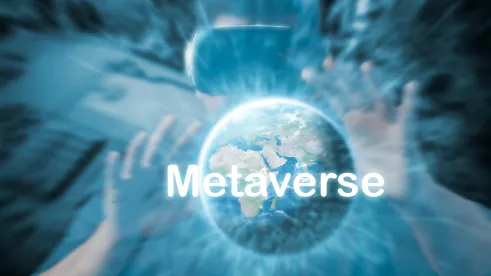The Metaverse is a minefield for intellectual property (IP) owners. Many of the threats to IP will be familiar — such as unauthorized use of trademarks, copying of content, and misuse of name/image/likeness. However, the best ways to establish and enforce IP rights in the Metaverse may seem to be hidden underground.
The first step is understanding that traditional IP is under siege in the Metaverse. Some users misuse the trademarks and the content of others, at times alleging legitimacy under the banner of fair use such as artistic freedom and the first sale doctrine. Newer web3 platforms themselves may not provide clear guidance on what is permissible or even mechanisms that enable owners to enforce their IP rights on their platforms. Furthermore, the underlying nature of blockchain technology, including immutability, persistence, and sometimes anonymity, may frustrate traditional enforcement efforts and limit potential redress. As a result, IP owners have become uncertain of how to define and enforce their rights in this evolving digital landscape.
The second step is identifying the new places where IP may emerge. For example, blockchain domain names and wallet names are IP assets that are new to many. Blockchain domain names can have many functions and can be used to direct a user to a particular location on the internet or on a blockchain network. In essence, wallet names are to crypto funds (and even other NFTs) as e-mail addresses are to messages. If you want to send someone crypto funds or an NFT without the need to recall a string of random letters/numbers, you need their wallet name. The opportunity for trademark abuse is glaring.
Importantly, assets like these may be covered by underutilized domain name protection programs. Companies that routinely register their new brands as domain names may not yet incorporate similar proactive measures to secure their brands as blockchain domain names (or wallet names).
The third step is understanding that the Metaverse is being developed simultaneously with input from big and small actors around the globe. No one is in control. This stands in sharp contrast to the current internet (web2) where traditional domain names and protocols started off, and currently are, largely under the dominion of and managed by governments and quasi-inter-governmental entities. The absence of a similar authoritative bodies in web3 might create uncertainty as to even basic questions, such as what law applies and how to establish and protect IP rights. Regardless of whether an IP owner has a presence in the Metaverse, the lesson learned from the commercialization of the internet is that brands, content, and artwork will find their way online. IP owners must heighten their vigilance if they want to minimize expensive headaches and potential losses in the future.
This is where having a game plan for proactively protecting IP and knowing the options for cost-efficient and effective enforcement can help IP owners not only maintain their IP, but turn it into a business advantage. Whether or not a company is in the Metaverse, we strongly encourage adopting a proactive approach to the protection of their IP in these new spaces.




 />i
/>i

